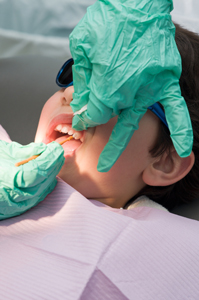
Chi set out to examine the relationship between caregivers’ refusal of preventative medical and dental care for children. He looked at prevalence rates of topical fluoride refusal based on dental records and caregiver self-reports for children treated in three dental clinics in Washington state. A 60-item survey was administered to 1,024 caregivers to evaluate the association between immunization and topical fluoride refusal. He applied modified Poisson regression models to estimate prevalence rate ratios (PRRs).
The prevalence of topical fluoride refusal was 4.9% according to dental records and 12.7% according to caregiver self-reports. The rate of immunization refusal was 27.4%. The regression models showed immunization refusal was significantly associated with topical fluoride refusal—dental record PRR?=?1.61; 95% confidence interval [CI]?=?1.32, 1.96; P?<?.001; caregiver self-report PRR?=?6.20; 95% CI?=?3.21, 11.98; P?<?.001. Chi found that caregivers under 35 years of age were significantly more likely than older caregivers to refuse both immunizations and topical fluoride (P < .05).
Chi recommend that future research look at the behavioral and social factors related to caregiver refusal of preventative care, with an eye to developing multidisciplinary strategies to help caregivers make the best preventative care decisions for their children.










